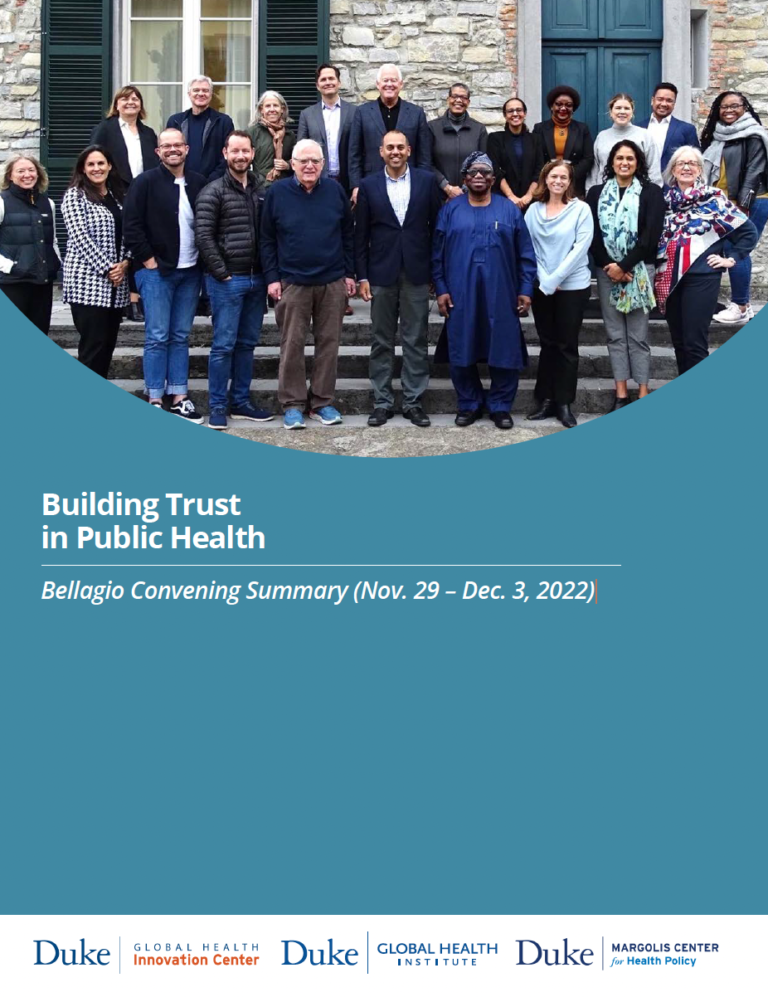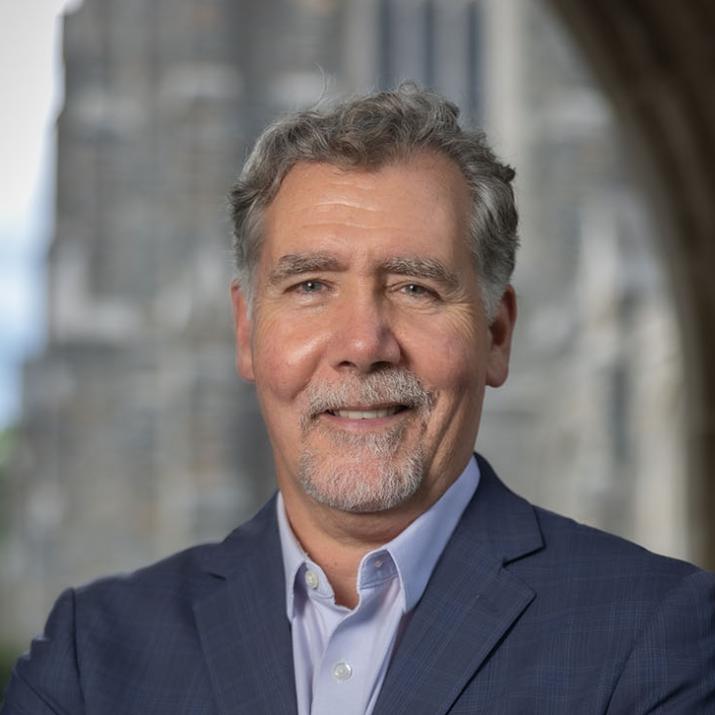Building Trust in Health
Trust in traditional health authorities and information is declining, while capabilities to create and spread false or misleading content are growing stronger. This is set against a backdrop of increasing skepticism in institutions, artificial intelligence reach, and disasters both natural and human-made. Allowing these trends to continue will have health and social ramifications that are increasingly dramatic, deep, and deadly.
Against these currents, many trustworthy individuals and organizations act in physical and virtual communities with good intentions—but insufficient coordination, capacity, and community engagement. This results in duplicative content and capacity-building on some topics, scant support on other topics, and continual, costly reinvention of the wheel. It creates an environment that is not only inefficient and potentially inequitable but also works against trust building as well as positive behavior and policy impact.
Unifying this fragmented fleet requires engaging and empowering communities both physical and virtual to make pro-health choices, strengthening and elevating competencies of individuals and organizations that discuss health issues with these communities, and further enhancing capabilities of these messengers through cutting-edge research and tools. Supporting trustworthy messengers to drive positive health behaviors and outcomes requires that they listen and respond to their community needs, leverage existing resources efficiently, and learn effectively from a network of peers. Recognizing the diversity of sources that influence health behaviors and the variety of channels through which they communicate requires bringing together diverse and trustworthy communicators representing the public, private, non-profit, and philanthropic sectors both within and beyond the traditional health workforce.
The Health Trust Initiative is anchored on trustworthy messengers ready, willing, and able to support diverse populations and policymakers to make evidence-based decisions about health. To support this critical workforce, we will assess community needs, create an agile marketplace of content and capacity building, and promote an active collaborative network of multisectoral trustworthy messengers. Our marketplace of capacity-building, cutting-edge tools as well as ecosystem coordination mechanisms will ensure health communicators can more effectively, efficiently, and energetically engage communities in ways that build and maintain trust. In turn, communities will increasingly make decisions consistent with evidence-based guidance and their own health.
In an increasingly interconnected and complex world, lives and livelihoods depend on immediate access to accurate, actionable health information. The Health Trust Initiative will make all communities safer by facilitating effective, efficient, equitable health communications that protect diverse populations against false and misleading information, ultimately rebuilding public trust and advancing sound personal and policy choices.
The seed funding for the Health Trust Initiative is provided by the Robert Wood Johnson Foundation. The initiative is co-led by Duke University and Katelyn Jetelina, MPH PhD. Planning efforts for the initiative included a Bellagio Convening on Building Trust in Public Health in late 2022.
Building Trust in Public Health
While trust in public health declined significantly during the COVID-19 pandemic, the public has been losing trust in a range of institutions for decades. The causes of this crisis in trust are complex, deep-rooted, and global in nature. The challenges of building and maintaining trust in health institutions are unique and reflect the important role that science and health care play in our lives.
To explore this challenge, and to align on potential multistakeholder initiatives to overcome it, Duke University, in collaboration with Jack Leslie and with support from The Rockefeller Foundation, hosted a convening from November 28 to December 3, 2022, focused on “Building Trust in Public Health.” Recognizing that there are significant regional differences in key drivers of trust, as well as potential solutions to build trust, related to sociopolitical context, culture, and history, among other factors, 20-plus cross-sectoral experts were specifically challenged to design and prepare a new initiative that builds trust in public health, with an initial focus on the US, Europe, and Africa. The convening was particularly designed to identify, build and strengthen a community of leaders and change agents committed to engagement and collaboration in this field.
Access the summary, including an overview of the emerging conceptual framework for trust in public health, a full cataloguing of the potential ideas and initiatives surfaced in breakout group and plenary synthesis discussions, and finally the three cornerstone initiatives that were prioritized by the participants as worth of further exploration and action post-Bellagio.

Latest News
May 2025 Trust Matters Newsletter
March 2025 Trust Matters Newsletter
January 2025 Trust Matters Newsletter
December 2024 Trust Matters Newsletter
November 2024 Trust Matters Newsletter
April 2024 Trust Matters Newsletter
January 2024 Trust Matters Newsletter
December 2023 Trust Matters Newsletter
November 2023 Trust Matters Newsletter
October 2023 Trust Matters Newsletter
August 2023 Trust Matters Newsletter
June 2023 Inaugural Trust Matters Newsletter
February 2023 Article: The Crisis of Trust in Public Health
January 2023 Press Release: Jack Leslie joins Duke to lead effort to build trust in public health
Past Events
Building Trust in Health, a 2024 Annual Forum Session
04 October 2024
The Health Trust Initiative participated in the Duke Global Health Innovation Center and Innovations in Healthcare 2024 Annual Forum session, “Building Trust in Health” in October 2024. This session addresses the public health as well as socio-political aspects of trust, focusing on forward-looking actions that we can take to build trust by focusing on empowering communities and strengthening health communications.
Quick Take: How Can Public Health Rebuild Trust?
28 September 2023
Duke Global Health Institute (DGHI) visiting scholar Jack Leslie discusses what leaders can do to improve confidence in public health measures in DGHI’s latest piece.
Building Trust in Public Health: A Post-COVID Roadmap
30 January 2023
How is it that modern science and medicine can produce miracles every day while at the same time lose the public’s trust? While trust in public health declined significantly during the COVID-19 pandemic, the public has been losing trust in institutions for decades. This session will explore the causes of this crisis in trust, the roles science and public health play in our lives, and the unique challenges of building and maintaining trust in health institutions and leaders, with a focus on the current challenges to confidence in public health in the US and Africa. Incorporating insights from a recent meeting of global cross-sectoral experts, the discussion will suggest some key actions needed to begin to restore confidence and trust in public health, focused on communities, communications, and competence.
Testimonials



